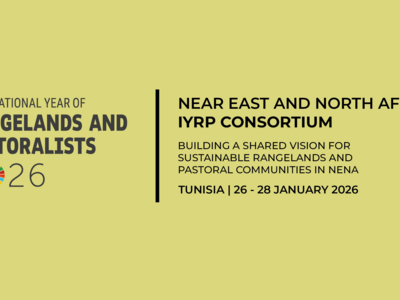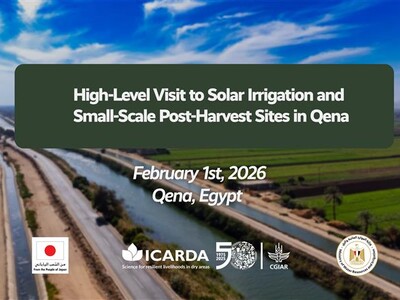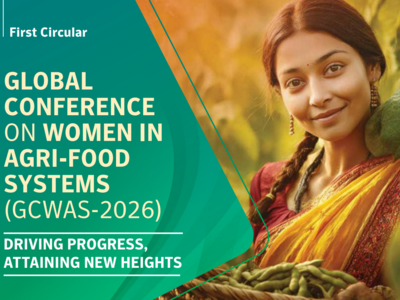Unleashing Agroecology in Tunisia: Highlights from NATAE's Inspiring Field Kick-Off Day
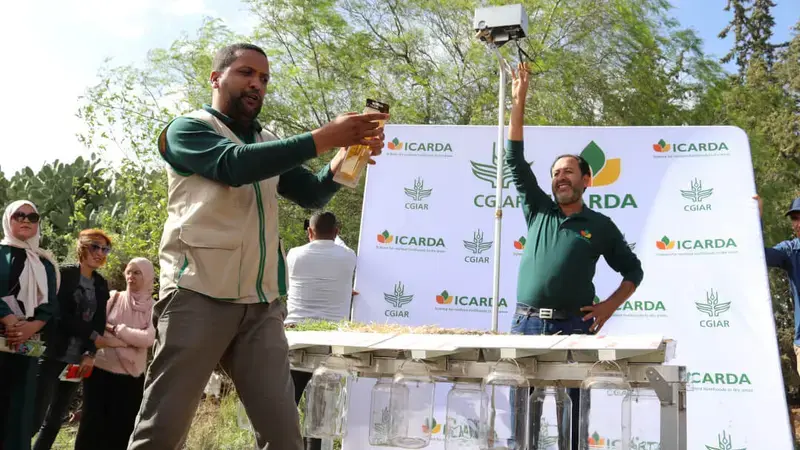
ICARDA, in collaboration with INAT, INGC, and local partners, hosted a participatory Field Kick-off Day to explore innovative agricultural practices for agroecology in Tunisia's semi-arid region. This initiative is part of the North African Transition to Agroecology (NATAE) project, funded by the European Commission and supported by the CGIAR Research Initiative on Agroecology and contributors to the CGIAR Trust Fund.
On October 24, 2024, the El Krib Living Lab in Tunisia’s Siliana district hosted the Field Kick-off Day to mark the launch of the 2024-25 cropping season under the NATAE project. The event brought together 54 participants, including farmers, researchers, extension agents, and NGOs, with a notable 50% female participation. It introduced innovative agroecological combinations aimed at promoting sustainable farming in the region.
“I’m excited to help scale up these agroecological practices and see the strong participation of women. The focus on locally adapted forage mixes is particularly valuable for farmers. Collaboration between researchers, extension services, and farmers is key to our shared success.” – Sara Marzouki, INGC.
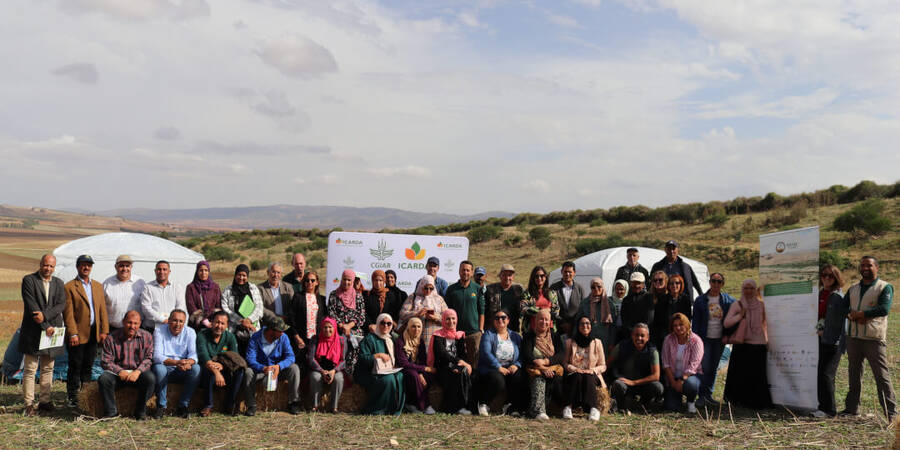
The event followed a participatory approach, encouraging collaboration among farmers, researchers, and extension agents. Discussions focused on prioritizing agroecological combinations, fostering a sense of ownership among farmers, and strengthening stakeholder relationships. A key objective was gathering farmers' feedback, which will help refine these practices and guide the Living Lab's research roadmap.
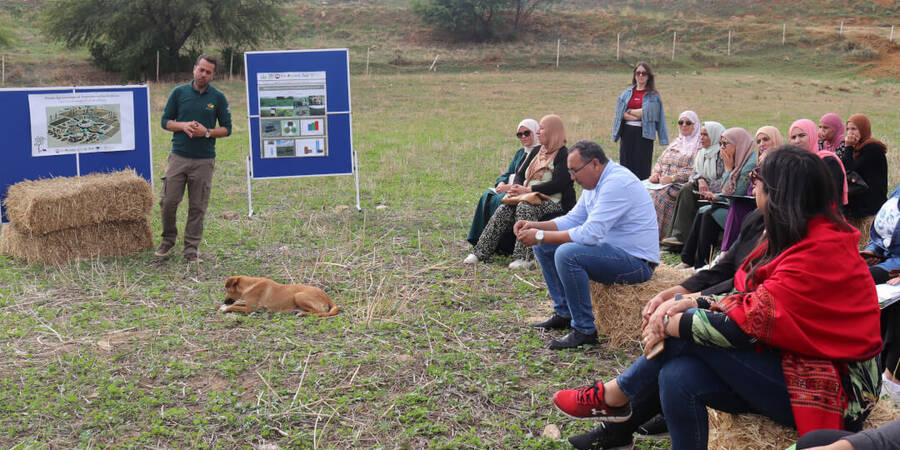
"In the NATAE project, Living Labs serve as open innovation networks, driving faster co-creation and scaling of agroecological innovations." – Aymen Frija, ICARDA.
Global food systems are failing to meet the Sustainable Development Goals (SDGs), with 820 million people undernourished and food systems contributing to environmental degradation, social inequalities, and biodiversity loss. Food systems are responsible for a third of global greenhouse gas emissions, highlighting the urgent need for a sustainable transformation. Agroecology offers a promising solution, promoting resilient, sustainable agriculture through participatory, site-specific strategies. However, scaling these practices is hindered by limited data, lack of integration among stakeholders, and inadequate policies and financing mechanisms.
In response, the NATAE project aims to accelerate the transition to agroecology in North Africa. It has established Living Labs in five North African countries—Algeria, Egypt, Mauritania, Morocco, and Tunisia—to develop and scale agroecological practices tailored to local conditions. The project focuses on sustainable agriculture, policy development, and establishing a Mediterranean multi-actor network on agroecology for knowledge exchange and community building, known as MEDAE.
El Krib, located in a semi-arid region, faces challenges such as poor soils, irregular rainfall, and soil erosion. The local agricultural system, dominated by cereal-livestock farming, is vulnerable to environmental degradation. To address these challenges, the NATAE project co-designed four agroecological practices:
- No-tillage combined with crop rotation (cereals/legumes).
- Intercropping with forage mixtures integrated with livestock.
- Forage mixtures integrated with livestock and reduced chemical inputs.
- No-tillage combined with crop rotation and livestock.
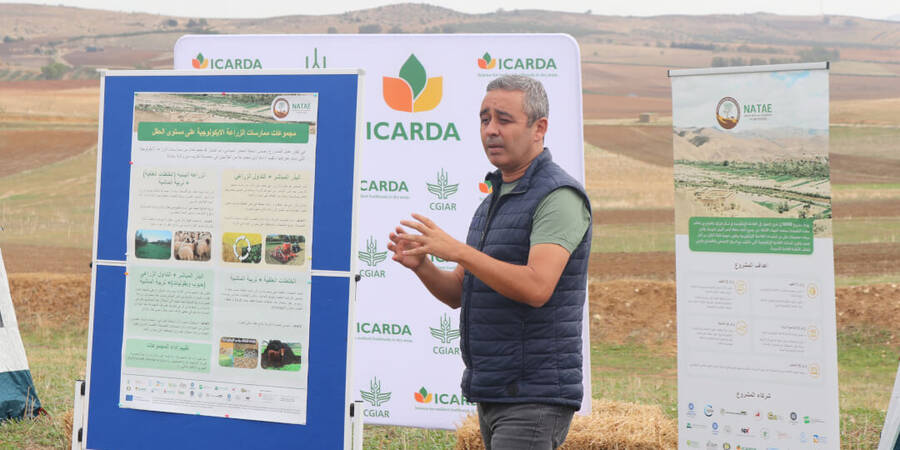
“The agroecological transition should not rely on a single practice but on a combination of practices that restore balance and improve soil health, reduce environmental damage, and enhance long-term productivity.” – Inès Zouari, INAT.
The kick-off day focused on discussing these practices with farmers and experts from various institutions, including INAT, INGC and INRAT. They shared knowledge on topics like conservation agriculture, crop-livestock systems, and soil health. The event also showcased a rainfall simulator to demonstrate the benefits of different farming practices on water retention and erosion control.
"This event shows how science and practice can help create resilient farming systems. The rainfall simulator vividly demonstrated that well-maintained soil improves water infiltration and erosion control.” – Salma Jallouli, INAT.
The hands-on demonstration highlighted the importance of no-till farming and soil conservation for sustainable agriculture. Participants saw firsthand how no-till fields with cover crops or mulches retained more water and lost less soil compared to conventional tillage methods.
“Participating in today’s field day was a great opportunity to learn about agroecology. The practical exercise with the rainfall simulator showed us how to reduce soil erosion, which is crucial in our degraded region.” – Mouldi Jaouadi, Farmer from El Krib.
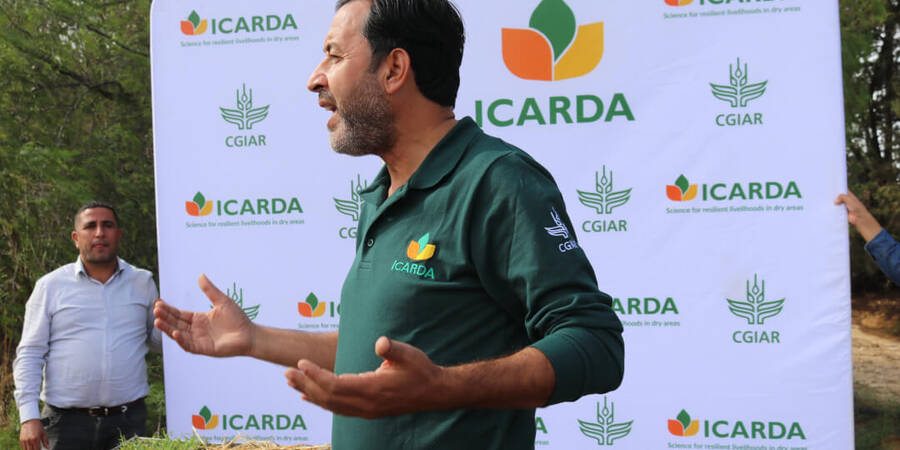
By combining research, hands-on experience, and community engagement, the NATAE project is laying the groundwork for a sustainable agroecological future in Tunisia and beyond.
Contributors:
- Zied Idoudi, Research Associate – ICARDA
- Masafumi Tamura, Technical Training Officer, ICARDA
- Aymen Frija, Senior Scientist – ICARDA
- Charles Kleinermann, Team Leader – ICARDA

